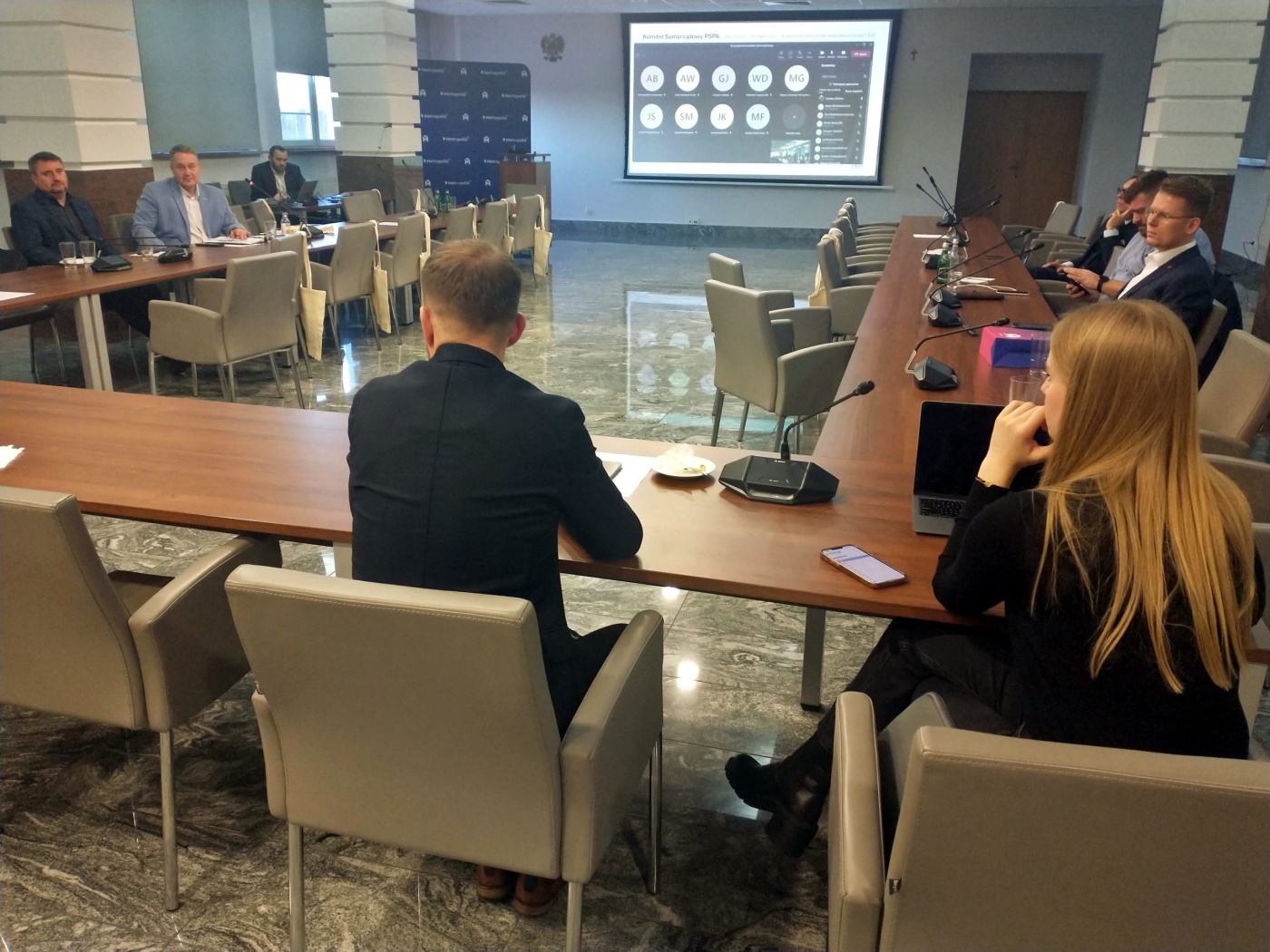
An inaugural workshop for local government officials in the „Laboratory of Low Emission Zones” project, with the participation of, among others, decision makers from the cities of Łódź, Kraków, Wrocław and the Metropolis GZM (Upper Silesia and Zagłębie Metropolitan Area), took place on January 12th in Katowice. The meeting was held as part of a GZM conference.
During the workshop, attended also by representatives of Białystok, Gdańsk, Gdynia, Poznań and Warsaw, the path that local governments who are considering introducing a Low Emission Zone (LEZ) should follow was presented and discussed – starting from verifying the level of pollution from road transport, through determining the geographical scope of the Zone and categories of vehicles authorized to enter, communication and educational activities, to the establishment of a LEZ and the evaluation of its functioning.
– Low Emission Zones are a new instrument in Poland, and their implementation requires a compromise between limiting vehicle traffic and the expected reduction of exhaust emissions. The foundation here is, of course, analyzes and research enabling the collection of necessary information about vehicles moving around the city and the pollution generated by them. Data from the Central Register of Vehicles and Drivers does not always allow to reliably determine these values, which is why the implementation of LEZ should start with testing exhaust emissions from road transport in real conditions and verifying to what extent they affect air quality – emphasized Maciej Mazur, Managing Director of the Polish Alternative Fuels Association (PSPA), partner of the „Laboratory of Low Emission Zones” project.The workshop was also an opportunity to present the goal and principle of this project. Participants of the meeting, which was held in hybrid form, got acquainted with the schedule of project activities addressed to local governments. One of them will be a study visit to Oslo, during which representatives of Polish local governments will have the opportunity to learn about the city’s efforts to develop clean transport and see the results first hand. A short Study Tour around the capital of Norway will include, among others, meetings with local decision makers and experts, as well as one of the workshops scheduled to be held within the project.